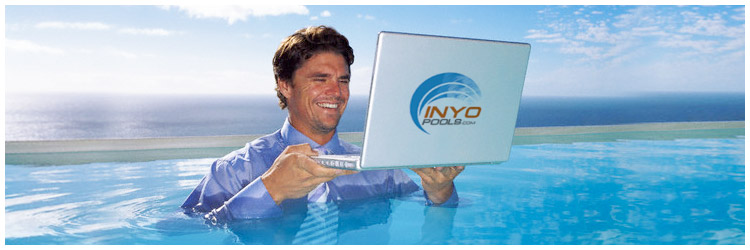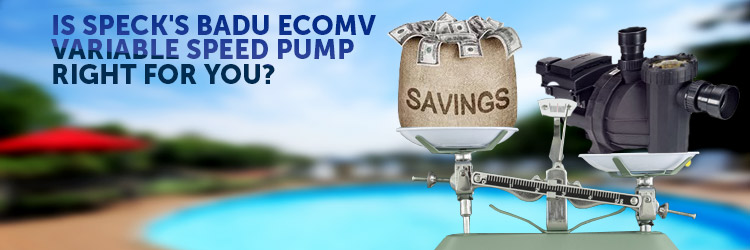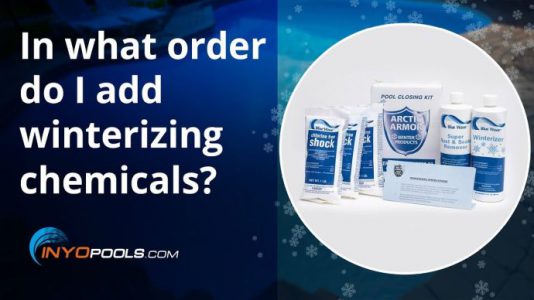It was so nice we did it twice.
It turns out the web is still chock full of pool knowledge nuggets. 5 Online Tools Pool Owners Can’t Live Without Part 1 had some highlights but let’s see if we can top it in the second round.
My Chemical Romance
To be honest, when I first owned a pool, the act of balancing my water chemistry felt more like a guessing game than a science. I would start with a pinch of this and a handful of that and then I would wait a couple hours for results. When I’d come come back to see nothing had changed, I’d get impatient and chuck a whole bucket of pH balance in the pool. If you’ve done this too then you’re in a very big club. Patience is not a virtue we pool owners are blessed with.
That little story is what brings us to our topic, The Pool Math Calculator by TroubleFreePool. This site is a one stop shop for conquering the mystical art of pool chemistry. This gizmo features a calculator for chlorine, pH, Total Alkalinity, and Cyanuric Acid. This formula sets the buildings blocks of a rock solid foundation for a clean and healthy pool. For you salt water pool owners out there, we have not forgotten you. The PoolMath site provides calculations for dissolving and adding salt to reach a desired ppm. The site also has a neat add-on at the bottom. Since the size of your pool plays into dosage, they have included a pool volume calculator as well.
Small disclaimer, the site is a little harsh on the eye. In my opinion, the colors salmon and teal should never be in the same room.
Variable Speed Leads to Veritable Savings
Variable speed (VS) motors are the talk of pool town but some pool owners are quick to dismiss them as a fad. We’re here to tell you they are here to stay. VS motors have not only proven to outlive your standard induction single and dual speed motors by up to a decade but are also more cost efficient.
The changeover does have a drawback; the cost of a variable speed pump is considerably higher than a standard pump.The power companies and states are balancing out the cost with rebates. On Pentair’s rebate page there is a quick reference guide available with money-back savings for your area. Each state has the specific power companies and area serviced with the VS rebates.
Power companies and governments have taken notice of new technology and have been making legislation to widen its reach. Pool heavy states such as California, Florida, Nevada and Texas have taken steps to make it mandatory for new pool construction. The push for higher grade motors is a move towards a more “green” pool system. This sea change is being led by power companies needing to relieve the drain from an already overworked power grid. In these states’ summer months, the combination of air conditioner units and pumps sap power stations at an unsustainable rate.
“It’s Gettin’ Hot In Here, So….”
A heater is a great addition to swimming pools in cooler climate states but heat is not free. Pool heaters run on natural gas or propane (LP) for their heat source and gas bills add up quick. So if you want to know operational costs before pulling the trigger on a heater, I suggest using Jandy’s Pool Heater Sizing Calculator. With a few inputs on your end, specifically the overall dimensions of your pool along with cost of fuel in your area, an hourly operating cost can be determined. The gas usage can be scaled to your desired temperature rise. The tool automatically adjusts the pool heater size according to your selected temp rise. To play it safe, we at Inyo always suggest oversizing a heater to insure quicker rise in temperature. The quicker your pool gets to the desired temp the sooner the heater shuts off and saves money on fuel long term.
Heat Pump Calculator
Pool owners in the central and northern states have a little something we Floridians do not have to worry about, it’s called winter. A large portion of the country has their pool season cut down to as little as 3 – 4 months of the year. Having grown up in Maryland, I know a cold fall can rip a whole month of fun off the back end of the season. The addition of a pool heater can extend both the beginning and end of pool season by a month.
Similar to our heater calculator, Hayward’s Heat Pump Cost Analysis tool helps you budget operation costs. A unique feature on this heat pump version is that it provides a comparison of heat pump operational costs to natural gas, propane and oil style heaters.
Don’t Forget Your Blankie
Why go through all the work we did in our heat pump and heater calculations just to let it most of it slip away once we get the heat into the pool? A fun fact I learned in school was that humans lose most of their body heat through their head.. The same can be said for a pool. Heat rises and as we speak, it is all rising out the surface area of your uncovered pool. Luckily, the same solution can be applied to both your head and the pool. Get a blanket! Well, a solar blanket in your pool’s case. The savings are substantial and the best way to see them for yourself is Jandy’s Pool Cover Calculator
Solar blankets remedy rising heating costs by trapping applied heat and in some cases harvesting the sun’s energy for an extra boost. Solar covers resemble a heavy duty bubble wrap that uses the seal air cushion as insulation against heat loss. The same principle is used in the construction of thermoses. Solar covers differ from one another in two ways, their thickness and color. Obviously, the thicker the blanket the better the insulation. Blankets range from 8 MIL all the way up to 16 MIL. The three main colors for solar blankets are clear, blue and black. Clear is the most efficient of the solar blankets as it will insulate heat as well as trap solar heat that seeps through its transparent surface. Blue and black follow in order respectively in terms of allowed sunlight.
As usual, if you are in a bind and need some on the spot pool knowledge, do not hesitate to give our techs a call. We love to help. Call us at 877-372-6038.











I need a safety cover for an above ground pool to put on each night. Does this exist?
A safety cover is meant for longterm installation, like when you close for winter, or if a pool is on a vacant property. They are a good bit of work to install once, let alone every day. Above ground pools do not have a suitable safety cover option.